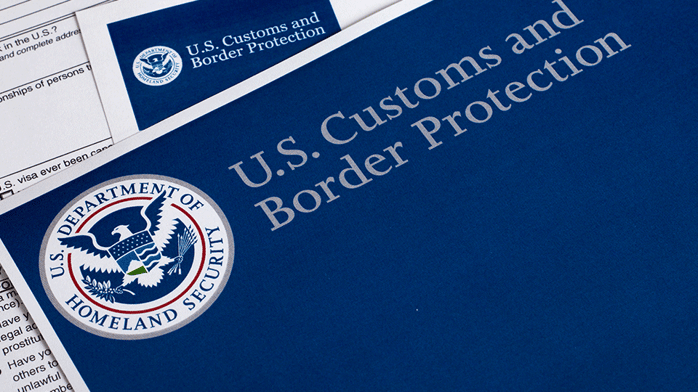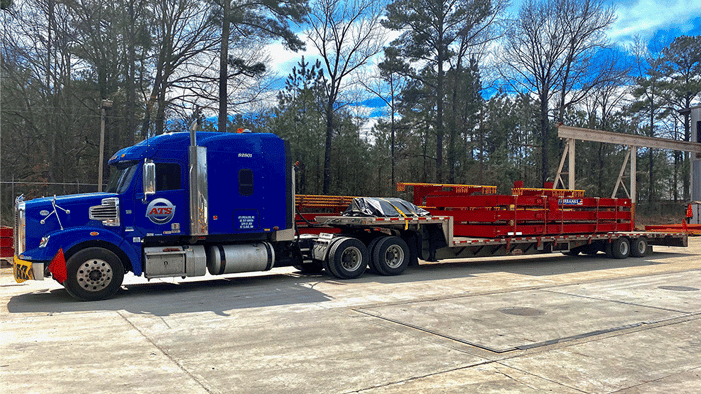
As our world becomes increasingly interconnected, with companies moving cargoes across governmental boundaries and international borders regularly, safety is top-of-mind for all of us.
That said, with so many moving parts to monitor and tasks to oversee, sometimes companies leave their safety protocols and practices by the wayside, undernourished.
This should never happen, though — a fact that’s not lost on the U.S. Customs Border Protection Agency (an office of federal law enforcement under the Department of Homeland Security).
As a prime proponent of supply chain safety in our global society, the U.S. Customs Border Protection Agency offers multiple avenues through which companies — of all shapes and sizes — can improve the security of their products, people, reputation and supply chain.
Earning and maintaining a Customs-Trade Partnership Against Terrorism (CTPAT) certification is one such avenue. But, what is a CTPAT certification? How is this certification earned? What are the benefits of receiving a CTPAT certification and/or working with other companies that hold them?
As a company that has consistently maintained a CTPAT certification for years now, in this article we’ll give you these crucial insights. And, with them in mind, these insights will help you make the right decisions (who to work with, whether to pursue one, etc.) for your business.
What is the Customs-Trade Partnership Against Terrorism (CTPAT)?
Established in 2001, the Customs-Trade Partnership Against Terrorism is a fundamental piece of the cargo protection and security policies effectuated and enforced by the U.S. Customs and Border Protection (CBP) agency.
Designed to promote safety across all of the supply chains adjacent to, and participating in, the transportation of cargo (particularly across U.S. borders), the CTPAT is a centralized program that supports this end. For the companies that engage in this partnership, CTPAT offers training programs and ongoing systems of support for them to utilize.
Although participating in CTPAT is open to companies of all kinds, a large portion of CTPAT’s members fall into these categories:
- Highway carriers
- Importers/exporters
- Freight consolidators
- Sea carriers
- Rail carriers
- Customs brokers
- Canadian manufacturers
- Mexican manufacturers
These types of businesses interact with international cargo transport with great regularity, making CTPAT’s methods and recommendations disproportionately valuable.
How Do Companies Get CTPAT Certified?
Joining the CTPAT is a voluntary decision for each company to make. And, though the price of admission is “free” — making it a viable option for any interested party — there are several criteria that must be met prior to joining.
For the most part, a company that is interested in joining CTPAT’s ranks can do so in three easy steps. . .
Step One: Review CTPAT’s Minimum Security Criteria
The first activity every company must take before joining CTPAT is to review the “minimum security criteria” outlined by the CBP. Since CTPAT is a voluntary program, it’s important that every member prioritizes and meets certain safety standards and criteria prior to entry.
These preemptive criteria are outlined, according to business-entity type, on the CBP’s website.
Step Two: Submit an Application
After each company has verified that they meet CTPAT admission criteria, they can then submit a formal application on the CTPAT online portal, indicating their interest in volunteering for CTPAT.
Step Three: Conduct and Submit a Supply Chain Security Profile
Finally, to gain admission to the Customs-Trade Partnership Against Terrorism, each company must evaluate and provide documentation outlining their current supply chain security practices. This security profile should outline and explain the level to which a business is currently meeting CTPAT’s minimum security requirements.
To gather this information, companies must conduct an in-depth risk assessment to identify current hazards, areas of strength/weakness and the segments of their supply chain that are highly exposed to terrorist activities.
Upon completion of these three steps, and the evaluations conducted by CTPAT officials, companies will either be denied or granted CTPAT certification.
As a member of CTPAT, corporations are assigned a Supply Chain Security Specialist — a single point of contact who’s charged with reviewing submitted materials and working alongside company stakeholders to identify and bolster areas of weakness.
To remain certified, each participating company must adhere to all recommendations outlined by their CTPAT advisor(s), conduct/submit to site inspections regularly and assess the security risks associated with their supply chain on an ongoing basis.

Why Do Trucking Companies Opt for CTPAT Certification?
As a motor carrier responsible for transporting freight across U.S. land borders, the advantages of attaining a CTPAT certification are vast. Among other things, CTPAT certified highway and long-haul carriers that consistently meet the safety criteria set for them and take proactive steps to mitigate risks receive:
- Priority access to Free and Secure Trade (FAST) lanes at cross-border points
- The ability to apply to other governmental safety programs
- An easily reachable, supply chain security specialist to answer questions and help them optimize processes.
- The possibility of shorter cross-border wait times
- Fewer and faster CBP inspections
- Ongoing safety training
Additionally, for some of the reasons outlined below, holding a CTPAT certification is a requirement many companies look for when selecting their preferred motor carriers. For this reason, many trucking companies enjoy the good reputation they develop, and new business they land, simply by holding to CTPAT’s standards.
What Are The Advantages of Working With a CTPAT Certified Trucking Company?
If your company consistently moves international cargo, and/or actively prioritizes safety in all aspects of your operations, working with a CTPAT-certified carrier may be worth considering. You see, if nothing else, a trucking company that earns a CTPAT certification is making a statement. These carriers are displaying their commitment to safety, security and safe practices in what can otherwise be a dangerous industry.
With so much on the line for you and your customers, working with trucking companies that make these statements can only do you well. Beyond this, CTPAT certified carriers grant their customers a couple of tangible benefits that are worth noting.
-
More Business Opportunities
In competitive businesses, it can be difficult for companies to differentiate themselves from the field. That said, a company’s safety practices and commitment to upholding them are a great way to do so. Sure, many businesses claim that they value safety, but few of them demonstrate these principles.
Earning your own CTPAT certification and only working with carriers that hold them as well, is an excellent way to ensure the beginning-to-end safety of your supply chain — and display your safety commitment to potential customers.
In the end, many businesses find their balance sheets brimming with transactions that resulted — at least partially — from their ongoing involvement in CTPAT.
-
Expedited Border-Crossing Processes
Customs clearance at international borders can be a time-consuming process — especially at U.S.-Mexico crossing points. It’s not unusual for carriers that aren’t CTPAT certified to face prolonged waits and comprehensive cargo inspections when crossing the border.
These delays can be difficult to plan for and, in instances where timelines are tight and customers are waiting, can come at the expense of your budget.
CTPAT trucking companies are granted special treatment at international crossing points, propelling them and the cargo they’re hauling at an accelerated pace. Fewer cargo inspections and FAST lane access can really expedite the crossing process, helping your freight arrive on time and in good condition.
What Else Should You Consider During Carrier Selection?
Safety isn’t the only metric you should base your carrier-selection decisions on. And, although it’s likely that a CTPAT certified trucking company will have other things going for it, this is far from a given.
When composing your own transportation network, and adding new carriers to its fold, there’s a laundry list of considerations you’ll want to make. Missing only a few crucial points could leave you relying on a carrier that doesn’t have the means or wherewithal to meet your needs. Needless to say, you’ll want to avoid this whenever possible.
To help you do just that — to ensure that the carrier selections you make are the right ones — download the free Freight Carrier Selection Checklist today.
Use this 36-question tool to guide your vetting conversations to ensure that each prospective provider is “checking all the boxes.”
Finally, here at Anderson Trucking Service (ATS), we take pride in our own safety procedures. As such, we’re confident in our ability to help you move your next load on time, securely and on budget. If you’d like to learn more about our service offerings and competencies, you can find this information here.




